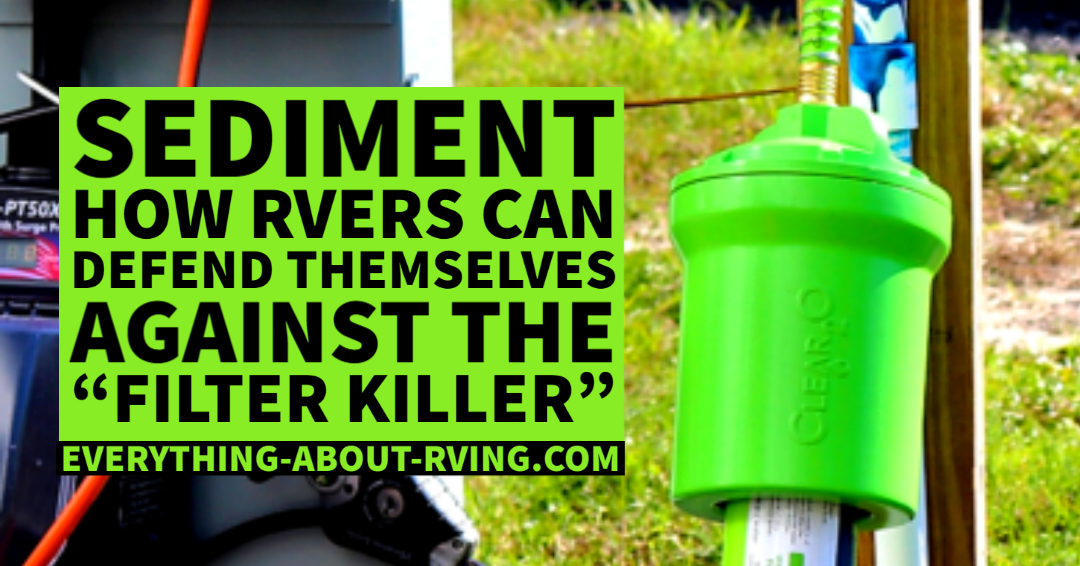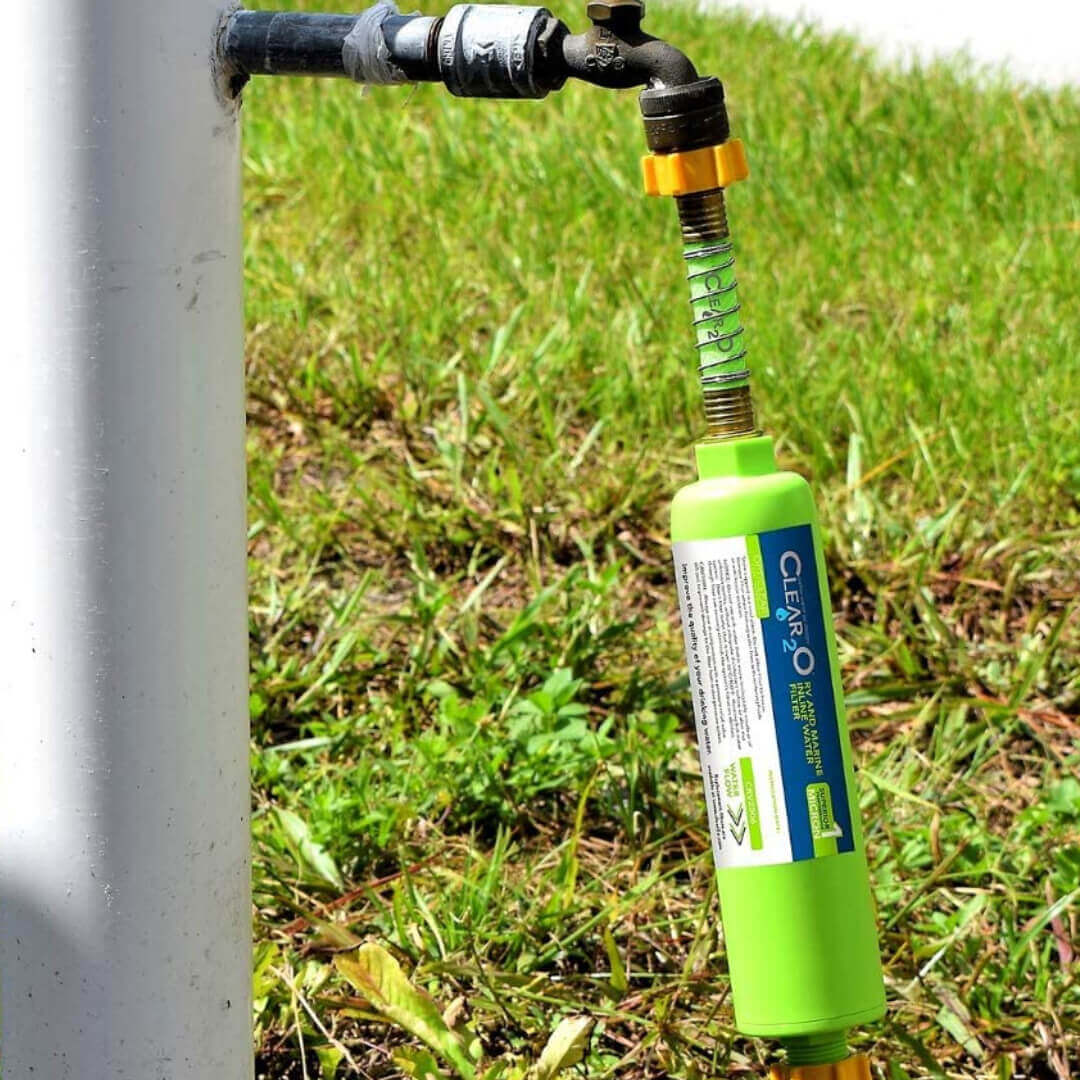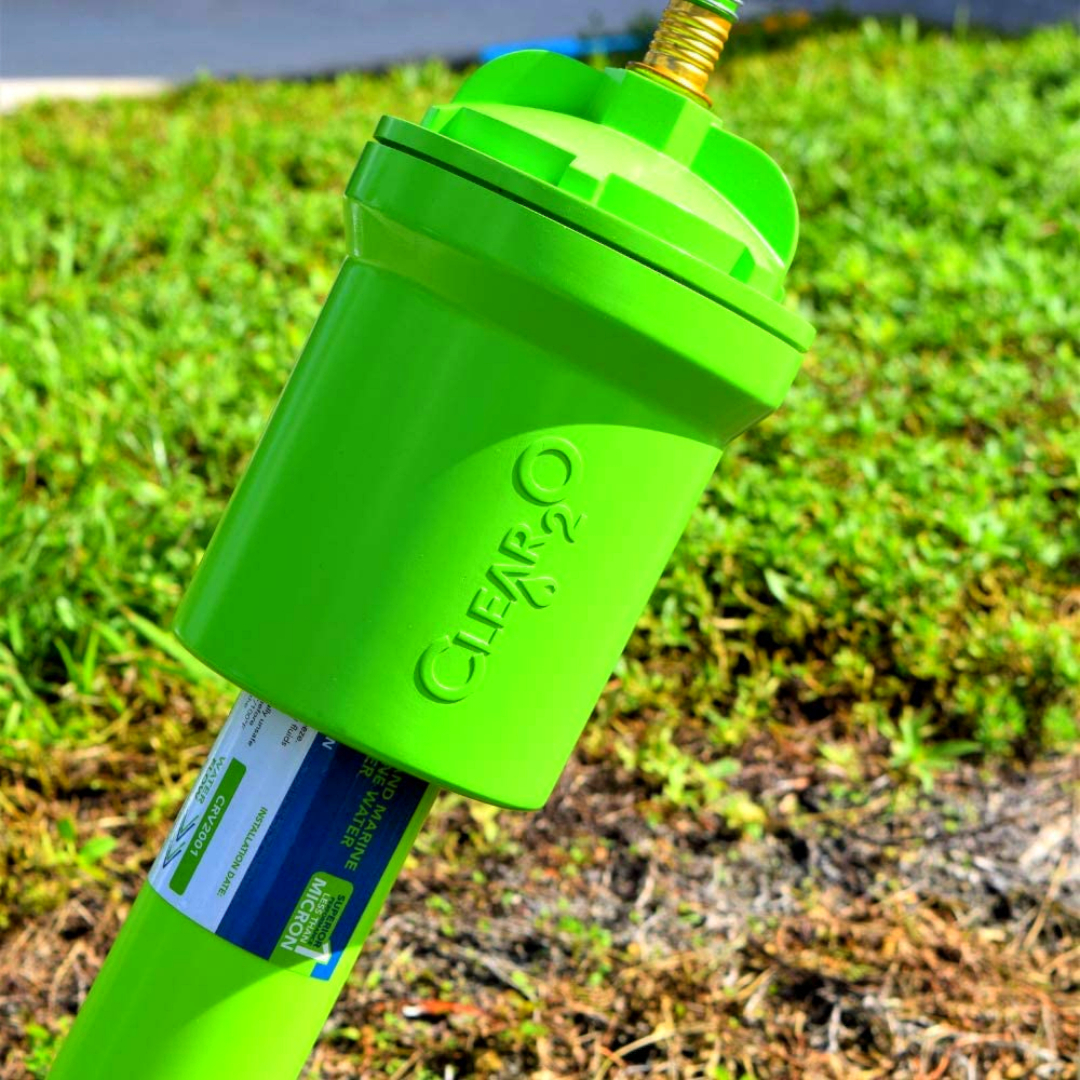Sediment
How RVers Can Defend Themselves from the
"Water Filter Killer"
Campground water in particular is notorious for containing large amounts of sediment
By Keith Bernard
CEO
of CLEAR2O®
Wikipedia defines sediment as "a naturally occurring material that is broken down by processes of weathering and erosion, and is subsequently transported by the action of wind, water, or ice or by the force of gravity acting on the particles." Put that way, sediment sounds like an interesting geologic occurrence.
Of course, if you ask an RVer what sediment is, it's doubtful they'll provide such a scholarly reply. They'll likely tell you something to the effect of, "It's the stuff that floats around at the bottom of my drinking water."
Unfortunately, RVers encounter sediment far more frequently than they would like. Sediment can be in virtually any water source, but campground water in particular is notorious for containing large amounts of sediment which, frankly, can be comprised of most anything: fine-grained particles like silt and clay, sand, rust, silt, small pieces of rock, you name it. Sediment in and of itself is generally not harmful to an RVer's health, although it can cause water to taste and smell unpleasant. However, some sedimentcan carry pollutants, such as nutrients, heavy metals, organic chemicals, bacteria and other pathogens along with it. These pollutants originate from sources such as agriculture runoff (which may contain pesticides), industrial waste, mine spoils, and urban contaminants and can pose both a short- and long-term health risk.
What's more, campground pipes, which are often quite old and poorly maintained, are made of lead; sediment can accelerate the erosion of the lead, which can then find its way into the water flow.
Also keep in mind: sediment can cause damage to your water pipes and fixtures, especially if it carries iron or other hard metals. This is why you don't just want to remove it from the water you drink but from all the water you use – to shower, cook, rinse food, and clean.
So, at its worst, sediment can lead to potential medical issues, as well as causing damage to piping and fixtures. At its best, it will give water a disagreeable taste, smell, or both. Either way, as an RVer, you don't want it.
The good news is that there are a number of filtration products that can remove sediment from the water you use in your RV. Sediment filters are important components of water treatment systems. Anytime water has dirt, debris, or fine particulate, a sediment filter is necessary. Sediment filters are also vital in ensuring other filters and water filtration equipment can operate efficiently.
Ideally, a two-stage system is best for RV water filtration. The first stage will remove the "big stuff" – the sediment and other particulates. The second stage will take care of the smaller, particulate and chemical pollutants that a sediment prefilter lets through.
There are various products to choose from, but many of them, while effective, can be extremely expensive (such as reverse osmosis (RO) systems and ultraviolet (UV) purification systems). There are alternative solutions, such as dual-stage canister systems that can do the job, but again, cost can be a factor.
Unfortunately, either because of cost or lack of knowledge, many RVers use a traditional inline filter to accomplish both objectives – taking out both the sediment, silt, rust and sand (the "big stuff") as well as the much smaller organic and chemical materials. Inline RV filters work well on chemical contaminants like chlorine but do little to handle the large particulate materials and, in fact, can get seriously clogged and rendered ineffective very quickly. That's why sediment, along with the aforementioned contaminants, are universally recognized as "filter killers."
Our CLEAR2O® RVand Marine Inline Water Filter (pictured above) is a great case in point. It filters at the 1-Micron level to take out harmful contaminants, bad taste, sulfur odor and chlorine in drinking water. However, while it can remove larger materials such as sediment, it will severely shorten the filter's lifespan. We've heard some customers tell us that they love our inline filter but that it didn't last as long as they expected. Upon questioning, we almost always find that they are using it in high-sediment areas and that the filter is basically doing two jobs instead of the one it was intended for.
Ironically, the reason the filter stops working is because, well...it's working! Competitive filters, which filter at a higher-micron level, may not be clogging quite as quickly. But they are also not performing the job they were supposed to be doing – removing the near-microscopic pollutants that can turn RV water into a potential source of serious health issues. And what's worse, they may not even be getting out all of the sediment, either.
The bottom line? What's needed is a two-stage filtration system that:
- Will remove sediment and other large particulates, as well as the smaller contaminants.
- Can work with an existing inline filter.
- Is cost-effective.
Our recently introduced DirtGUARD (pictured above) is that product. Intended specifically for high-sediment areas, DirtGUARD™ creates a 20-micron, physical barrier to block sand, silt, sediment, and particulates from entering the carbon filter. This allows the carbon filter to perform its intended function, which is focusing on the taste, color, and odor issues.
In doing so, it can significantly extend the life of the RV's carbon filter by preventing the sand, silt, sediment, and rust from being trapped in the carbon filter or worse, pass through and cause buildup within the RV piping. It can also help the carbon filter maintain higher water flow rates throughout its life. By incorporating the DirtGUARD™ prefilter to the existing online carbon filter, the user is creating a very cost-effective, two-stage RV filter system.
Let's face it, sediment is a fact of life when it comes to RVing, especially in campground water. But with a better understanding of the issues it can cause – as well as increased awareness of the options available to neutralize it (like DirtGUARD) – sediment can go from an unwelcome guest to a distant memory.
About The Author
Keith Bernard is the CEO of CLEAR2O®, one of the leading manufacturers of water filtration products for RVers.
Do you have any suggestions or comments on this topic? You can add them to this page by using the comments section located below.






